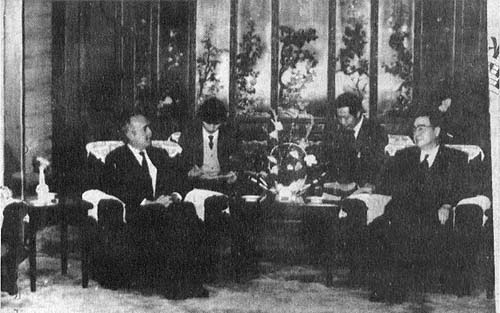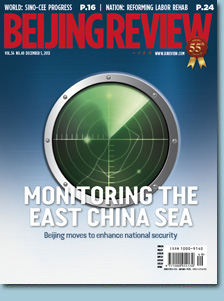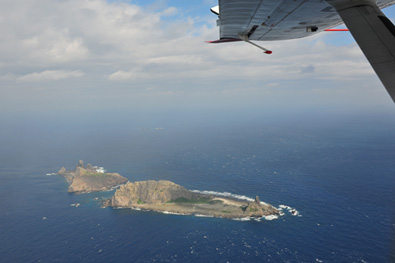Exchanges between the Communist Party of China (CPC) and political parties worldwide are constantly enlarging. Especially in recent years the CPC has actively developed relations with the political parties of other countries to promote ties between China and these countries and strengthen the friendship between the Chinese people and others.
Today, the CPC has connections with nearly 300 political parties in more than 100 countries. Most political parties with significant world influence, including ruling parties and participating parties in the government and political affairs, have contacts with the CPC.
These exchanges are increasingly frequent, and have become an important aspect of the international relations. The exchanges between the ruling parties are now a major component of diplomacy of many countries.
"The Communist Party of China values its relations with the political parties of other countries," said CPC General Secretary Jiang Zemin in his report at the 14th National Congress of the Party. "We shall continue to develop friendly relations with such parties in accordance with the principles of independence, complete equality, mutual respect and non-interference in each other's internal affairs and to increase mutual understanding and cooperation in the spirit of seeking common ground while putting aside differences."
 |
|
General Secretary Jiang Zemin meeting with a delegation of the Nepalese Congress Party in Zhongnanhai of Beijing on November 4, 1992. |
These principles were formally put forward at the 12th National Congress of the Party in 1982 and have been further expounded at the 13th and 14th National Congresses of the Party. Accordingly, the CPC has energetically expanded ties with other parties, while striving for five goals:
First, the CPC's international liaison work serves peace and development, as well as China's modernization, reform and opening to the outside world. Peace and development are the two major tasks facing the world today. The CPC unites with all the forces friendly toward China and supports the cause of preserving world peace and promoting social progress through trading with other political parties views and holding dialogues on the current international situation. Guided by the line of the 14th National Congress of the Party, the CPC often exchanges experiences of the construction and economic development with other parties in order to realize the great goal of China's development strategy. The international work of the Party, like other foreign affairs of China, seeks to create a favorable international environment for China's socialist modernization.
Second, the CPC observes the principles of "independence, complete equality, mutual respect and non-interference in each other's internal affairs" in its effort to establish ties with all other parties. These four principles are interrelated and its core is the non-interference in each other's internal affairs. All the parties independently decide their own matters and handle the relations with other parties. This includes non-interference in other parties' internal affairs and other countries' internal affairs through the party relationship. The bilateral party relationship neither interferes in, nor opposes a third party. History repeatedly proves that violation of these principles makes healthy inter-party relations difficult. No party should interfere in other parties' internal affairs or impose its ideology and values upon other parties in any way.
There are different social systems, paths of development, values, religious beliefs and cultural traditions in the world of today. The political parties as representatives of the political forces are naturally different. Different party ideologies, programs and positions should not be obstacles to establishing and developing formal exchanges and friendly relations. All parties should respect each other and seek common ground while putting aside differences.
 |
|
Premier Li Peng meeting with Vivaldo Barbosa in Beijing on January 6, 1992. Barbosa headed a delegation of leaders of Brazil's major political parties (ZHONG LIAN) |
Third, in foreign exchanges the CPC does not directly handle any concrete state affairs, but puts stress on exchanging views and experiences of the state and party construction. While extensively contacting with friends, the CPC promotes friendly and cooperative relations between the countries and deepens friendship among the people. Not long ago, the CPC and the Japan Socialist Party respectively sent large delegations to make mutual visits for celebrating the 20th anniversary of China-Japan normalization. The CPC also made extensive contacts with the Liberal Democratic Party and other parties of Japan, groups and people of all walks of life. These activities are an important part of effort to strengthen and develop Sino-Japanese friendly relations.
Fourth, in foreign exchanges the CPC attaches importance to exchanging experiences of economic development and deepening economic cooperation. In recent years the CPC put top priority on examining the path of development or development strategy of other countries, their successful experiences and failures in construction, reform of economic system, market economy, economic operative system, professional training and environmental protection. The CPC also introduced to other parties China's construction, development, reform and opening to the outside world and furthered their understanding about China. Furthermore, through the party and mass groups' channels the CPC tried to directly serve China's economic construction by establishing connections and building bridges between the domestic economic sectors and regions and their foreign counterparts so that they can draw foreign investment, technology and talented people.
 |
|
Member of of the Standing Committee of the Political Bureau of the CPC Central Committee Qiao Shi meeting with Member of the Political Bureau of the Cuban Communist Party Juan Almeida in Beijing on April 27, 1992 (ZHONG LIAN) |
Fifth, the CPC supports the people's just struggles of various countries. It opposes hegemony, power politics and aggression in any form and supports the people's just struggles of all the countries, and third world countries in particular, against foreign aggression, interference and for their legitimate rights. Together with the people of other countries, the CPC will continue to make efforts to establish a peaceful, stable, fair and rational international new order.
These goals mark a fundamental change in the CPC's foreign exchanges after the end of the "cultural revolution" and particularly after the Third Plenary Session of the I1th CPC Central Committee held in 1978. In the early 1960s the large debate on an international communist movement took place. Following this, China launched the "cultural revolution" and the majority of foreign Communist Parties suspended ties with the CPC.
Before the "cultural revolution," the CPC, since its founding in 1921, had a history of developing ties and exchanges with foreign political parties and people. During the period of China's Revolutionary Civil War and the world's anti-fascist war, the hard and bitter struggle of the Chinese people and the CPC won sympathy, solidarity and support from the peoples of the world. At the same time the Chinese people also expressed solidarity with and support to other people's just struggle. After the founding of the People's Republic of China in 1949, the CPC enlarged and developed ties and exchanges with other peoples, Communist Parties and friendly personages. In the 1950s the international liaison job of the CPC made contributions toward safeguarding national sovereignty, independence and security, supporting the people's just struggles of Asian, African and Latin American countries, seeking a peaceful environment for New China and safeguarding world peace and progressive cause of mankind.
Today, the CPC continues to actively enlarge and develop ties, contacts and exchanges with other political parties and make contributions toward world peace and development.
(NO. 1 JANUARY 4, 1993)


